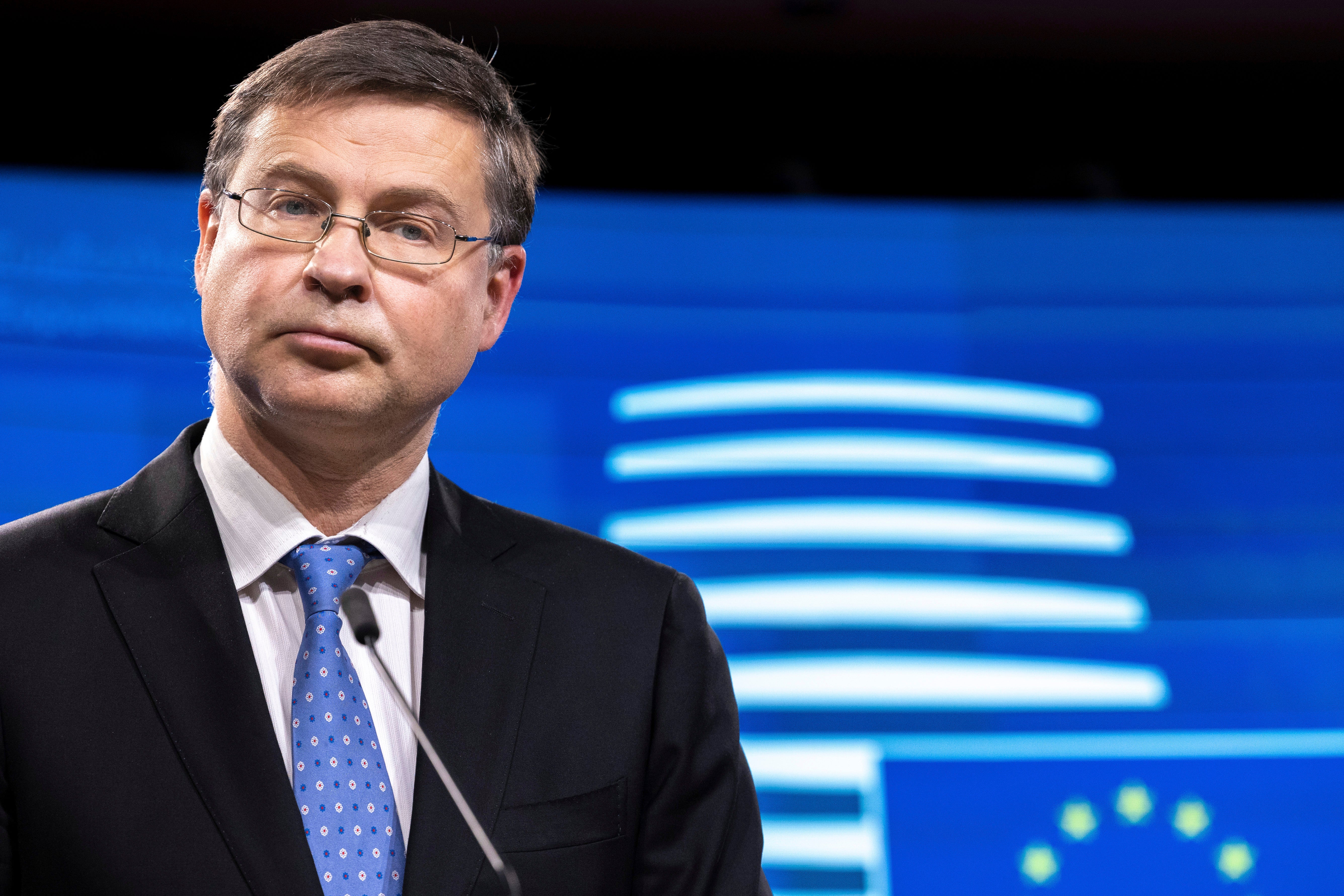EU launches WTO action against China over Lithuania dispute
The European Union says it's launched action against China at world trade’s governing body for discriminatory practices against Lithuania

Your support helps us to tell the story
From reproductive rights to climate change to Big Tech, The Independent is on the ground when the story is developing. Whether it's investigating the financials of Elon Musk's pro-Trump PAC or producing our latest documentary, 'The A Word', which shines a light on the American women fighting for reproductive rights, we know how important it is to parse out the facts from the messaging.
At such a critical moment in US history, we need reporters on the ground. Your donation allows us to keep sending journalists to speak to both sides of the story.
The Independent is trusted by Americans across the entire political spectrum. And unlike many other quality news outlets, we choose not to lock Americans out of our reporting and analysis with paywalls. We believe quality journalism should be available to everyone, paid for by those who can afford it.
Your support makes all the difference.The European Union on Thursday stepped up its dispute with China as it took an economic spat over exports from member state Lithuania to the world trade's governing body and accused Beijing of seeking to undermine the 27-nation bloc's single market.
EU Trade Commissioner Valdis Dombrovskis insisted the European Union was owed more respect and said Beijing should stop coercing member states with heavy-handed trade tactics like blocking imports based on political grounds.
“Our relationship requires mutual respect,” Dombrovskis said as he announced the EU action at the World Trade Organization.
Lithuania broke with diplomatic custom by agreeing that the Taiwanese office in Vilnius would bear the name Taiwan instead of Chinese Taipei, a term used by other countries to avoid offending Beijing. China considers Taiwan part of its territory with no right to diplomatic recognition.
Beijing expelled the Lithuanian ambassador and withdrew its own ambassador. Last month, Lithuania closed its own embassy in the Chinese capital. Tensions have mounted, and Lithuania, together with the EU, accuse Beijing of holding up goods at China’s borders.
“Let me be clear these measures are a threat to the integrity of the EU single market so it affects the entire EU trade and EU supply chains, and they have a negative effect on EU industry,” Dombrovskis said.
Even if Lithuania only has a population of 2.8 million, Dombrovkis said not reacting to Beijing's action could spread throughout the whole bloc of 450 million people.
“China is putting pressure on international companies to abandon the use of Lithuanian components in their production. Otherwise, they may face import restrictions,” said Dombrovskis.
Because of it, such an economic move against one member state, made it a trade attack on all.
“The EU is determined to act as one and act fast against measures in breach of WTO rules," Dombrovskis said.
Lithuania was thankful to have such EU support.
"This step is a clear message to China that the EU will not tolerate politically motivated actions of economic coercion,” Foreign Minister Gabrielius Landsbergis said.
The European Commission manages trade on behalf of the 27 EU member countries. It says it has built up evidence of Chinese restrictions. They include a refusal to clear Lithuanian goods through customs, the rejection of import applications from Lithuania, and pressuring European companies.
The WTO process, though, can take many months, if not years before a final decision is reached.
Thursday's move is likely to further dent relations that China long saw as favorable to counterbalance the economic and political strife it faced with the United States. Last year, the EU joined Washington, Britain and Canada in imposing sanctions on Chinese officials over accusations they are linked to the abuse of ethnic minorities. Beijing retaliated by announcing it would penalize four European legislators, among others.
Those countermeasures in effect froze the approval of a potentially massive investment deal between China and the EU which was tentatively agreed on in December 2020.
“The European Parliament has been clear that it will not proceed with this ratification of this agreement in a situation where members of European Parliament are under China’s sanctions,” Dombrovskis said.
___
Liudas Dapkus contributed to this report from Vilnius, Lithuania.